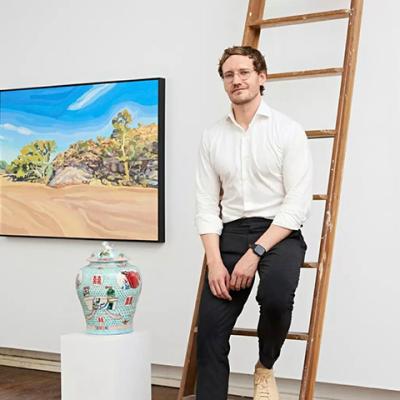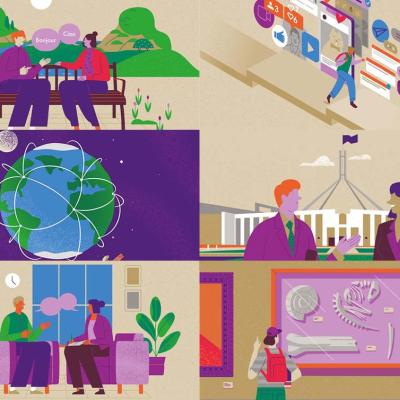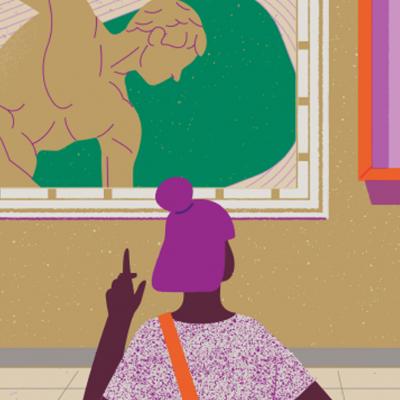Are you a budding artist yourself or just fascinated by the ever-changing world of artistry? Either way, this Bachelor of Arts major can help prepare you for a successful and rewarding art history career.
The Art History major is, at its core, an eye-opener. It enables you to view the world through various lenses and appreciate visual cultures on multiple levels. Ultimately, you’ll graduate with a well-rounded perspective and the ability to understand societies – past and present – through the many mediums of art.
But what does this all mean, really? What do you get from an art history degree or by choosing this major for your Bachelor of Arts?
We spoke with UQ’s Art History major convenor, Dr Paolo Magagnoli, to find out.
Is Art History a good major?
If you’re hoping to work in the visual arts industry or publishing sector, yes. This major provides you with both the practical skills and theoretical understanding to thrive in this field.
Paolo believes Art History students are equipped to explore in detail the ongoing significance of images. And this skill is only becoming more relevant over time.
“We live in a world that, more and more, relies on images rather than written or spoken words as a primary medium of communication.”
UQ students in this major have great opportunities to put their learnings into action through internships and similar experiences, both locally and abroad.
“Our students benefit from a range of substantive curatorial internship and professional development opportunities across Australia and internationally,” says Paolo.

In addition to volunteering at our own UQ Art Museum, prior Art History students have secured work experience placements in institutes including:
- Queensland Art Gallery | Gallery of Modern Art (QAGOMA)
- Home of the Arts (HOTA) on the Gold Coast
- Bula’bula Arts Aboriginal Corporation
- National Gallery of Victoria
- Guggenheim Museums in New York, Venice and Abu Dhabi
- Art Biennale and Architecture Biennale in Venice.
Having this practical experience as part of your program ensures you graduate with the confidence to step straight into your art history career.
Skills you get when you study art history
The skills you’ll learn from this major include:
- practical skills in visual literacy (understanding and interpreting images)
- practical writing and communication skills
- curation and design of exhibitions
- historical analysis of artworks
- attention to detail.
Why is art history important?
Studying art history is important because it enables us to understand the past on a deeper level while also interpreting how that past relates to our present and future. By studying art history, we can:
- develop a richer understanding and appreciation of different civilisations throughout history
- preserve cultural heritage by documenting, restoring and protecting artworks for future generations
- enhance our ability to analyse, critique and distinguish meanings from artworks
- gain valuable insights into social movements, historical events and political worldviews captured in art
- create connections across cultural and geographical borders through mutual appreciation and dialogue around art
- explore the human experience and how it has (and hasn't) changed across generations through the lens of art.
The importance of studying art history can be seen in the way art historians promote cultural literacy and preserve cultural heritage. Art provides a crucial, immortal perspective on individuals and societies from different places and times, and art history allows us to fully appreciate this perspective.
Art history careers
This major can lead to a wide range of art-related career paths. Or, depending on your other major (and other program, if you’re studying a dual degree), Art History courses can provide you with a fresh and unique perspective to take into any field – even industries that, on the surface, don’t seem to relate to art history at all.
Our graduates frequently find themselves working as:
- gallery assistants and directors
- exhibition assistants and directors
- museum operations managers
- gallery curators
- artistic directors
- art editors
- art therapists
- arts writers and journalists
- arts festival directors
- commercial arts dealers.
Alumni spotlight: Jodi Ferrari
- Children's Gallery Coordinator at Home of the Arts (HOTA)
- Bachelor of Arts (Art History)
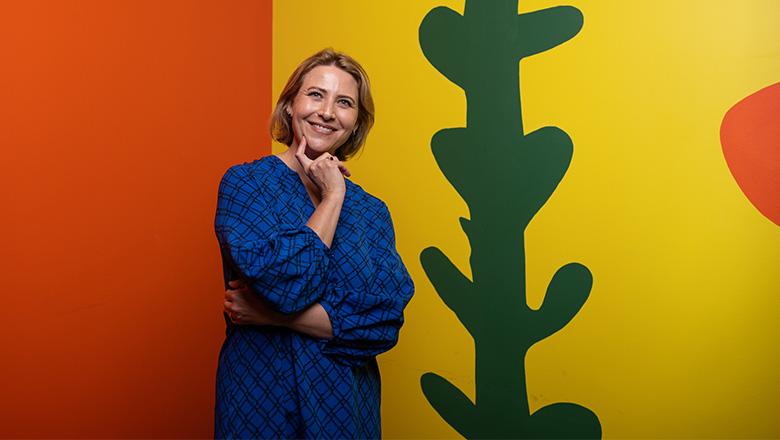
"My BA was the best foundation for my arts education career pathway into curatorship. It helped me put my passion for advocating the importance of getting kids interested in the arts into action through my role as the Coordinator of HOTA’s Children’s Gallery.
"I get to curate fun and interactive exhibition projects in collaboration with artists for visiting families, bringing young people into the gallery, making them feel comfortable with the gallery environment and sparking a lifelong love of art. I couldn’t have worked in art galleries for the past 20+ years without this solid foundation."
"An arts degree can be an opportunity to explore areas of passion and offers the flexibility to dip your toes into a wide range of areas of study. I think it’s a fantastic degree to find your own passion and follow that career pathway."
Alumni spotlight: Olivia Trenorden
- Public Programs Coordinator at Shepparton Art Museum
- Bachelor of Arts (Honours) (Art History, Journalism and Mass Communication, Gender Studies)
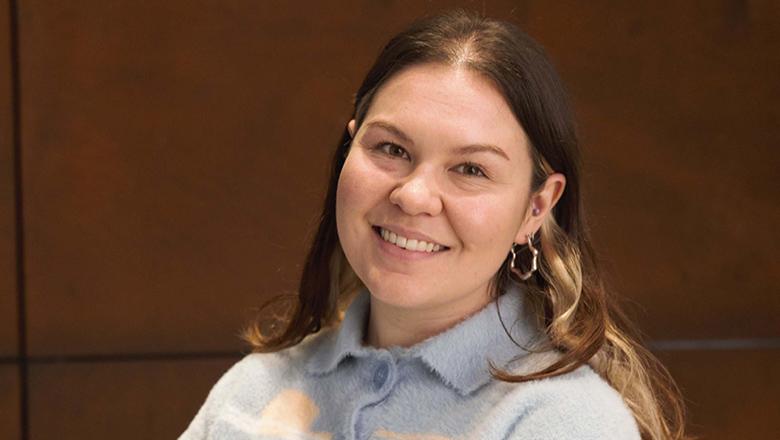
Olivia’s BA journey has led her to opportunities in Queensland, the Northern Territory and Italy, before landing in Shepparton Art Museum, where she took on the role of Public Programs Coordinator.
"My role is varied and diverse, just like a BA, and every day I find new ways to apply my knowledge and education, whether it be by contributing to an artist panel discussion, training the next generation of arts professionals, or uplifting young people," she says.
"Prior to my current role, I worked within Brisbane and Ipswich galleries and organisations, where the rich network of UQ alumni were waiting for me!"
Study art history at UQ
If you choose this major as part of your Bachelor of Arts, you’ll get to enrol in courses including:
- Art in the Modern World
- Art in a Global World
- Readings in Art History
- Renaissance and Baroque Art
- Australia Pacific Indigenous Arts
- Australian Art
- Art and Architecture in Venice
- Photography from the Daguerreotype to Instagram
Learn more about UQ’s Art History major Explore other options in the UQ Bachelor of Arts


